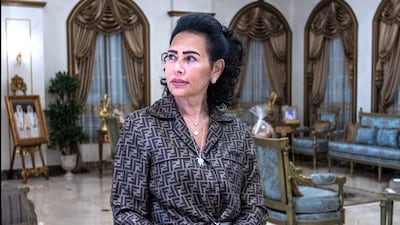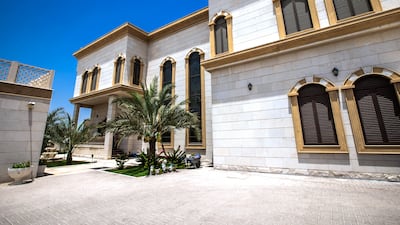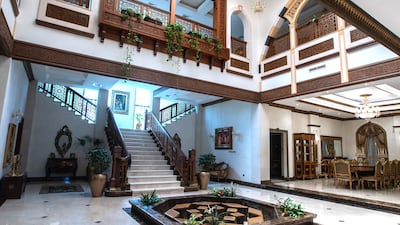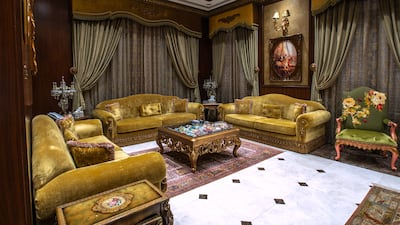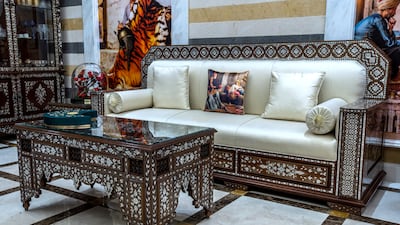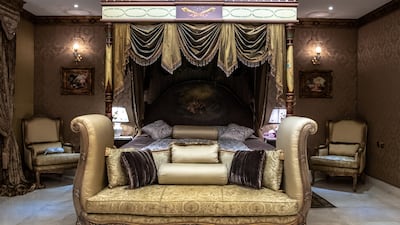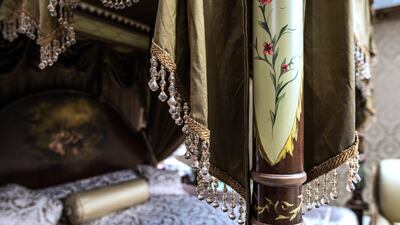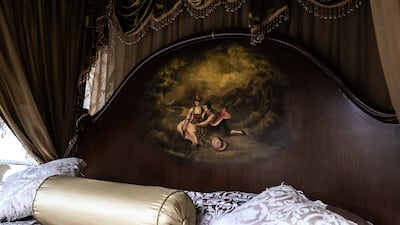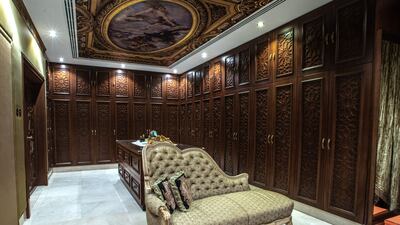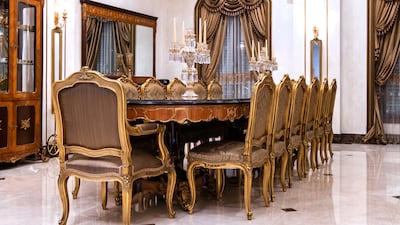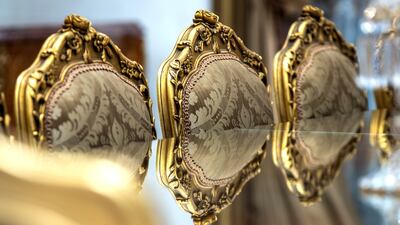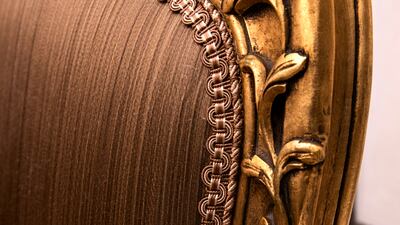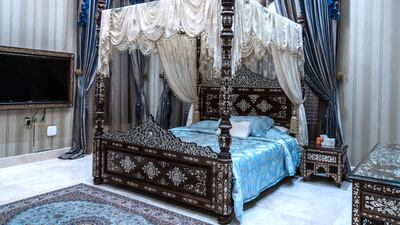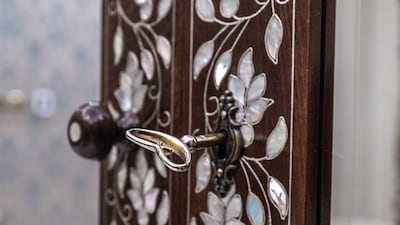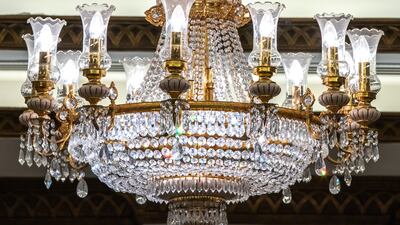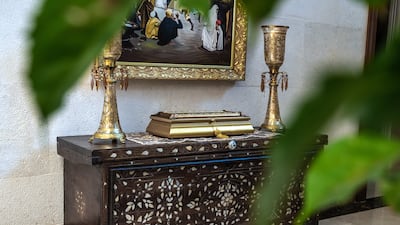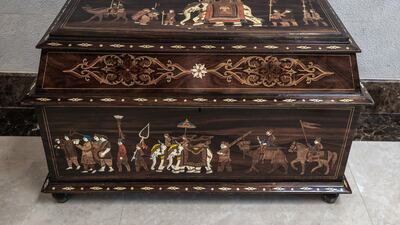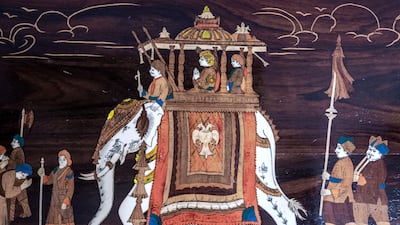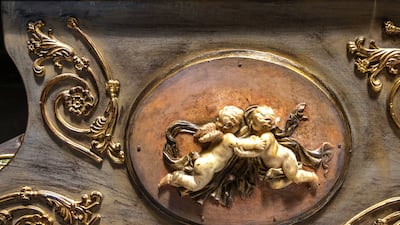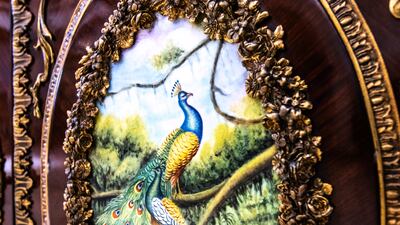Involving family in professional projects can be a volatile affair. However, for Abeer Al Ameri, interior designing her parent’s house in Sharjah was a chance to collaborate with the person she credits as the source of her aesthetic sensibilities.
“My mother is a big reason why I do this,” says Al Ameri, founder of Salud Design, a luxury home decor boutique specialising in high-end vintage furniture from 18th and 19th century Europe. “I’ve always had a passion for opulent design and 80 per cent of my passion comes from my mother.”
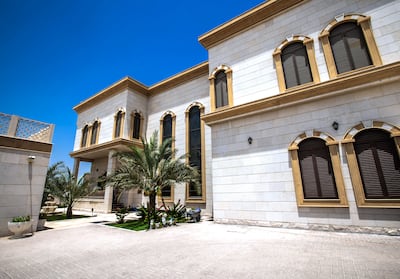
Her mum Leena Al Akkad's home has been a project 15 years in the making. A Syrian national who has been living in Dubai for more than four decades, Al Akkad wanted her house to pay homage to her grandfather’s home in Damascus, where she grew up. She wanted to instil an “Arab spirit” with French baroque flair.
“From the beginning, I knew I wanted a liwan, central fountain and mashrabiyas. The house had to reflect the place I come from,” Al Akkad says. “I wanted something from our countries to put an Arab spirit into the house. But at the same time, I didn’t want it to be exclusively Arab. The house is spacious, so it can handle different themes, mixing between European and Arabian.”
Al Akkad envisioned a Damascene palace with the splendour of King Louis XIV’s court. And, given the unusual nature of a commission like this in the UAE, it took time to find the right teams for the job.
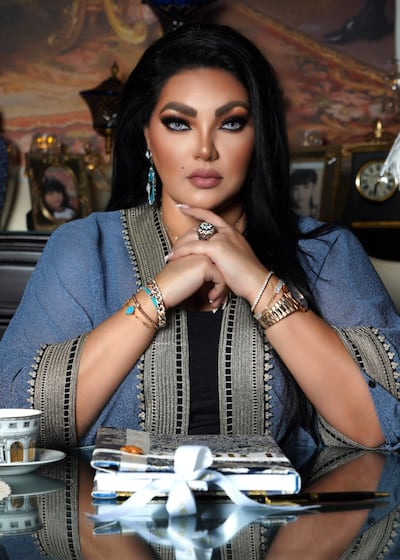
However, even after the house was finished, as its stone-striped arches brought traditional Damascus architecture to the Qarayen suburb in Sharjah, it was just beginning.
“The design brief was mainly her background,” Al Ameri says. “She wanted a house implementing what a traditional Syrian house would look like. The liwan, the courtyard fountain, the main pieces of furniture all reflect on her heritage.”
Most of the furniture adorning the six bedrooms and eight bathrooms have been made to measure by reputed Levantine and Egyptian artisans. There are some locally produced items as well as antique French, Indian and Italian pieces bought from auctions, such as the two French credenzas in the foyer, each of which cost $28,000.
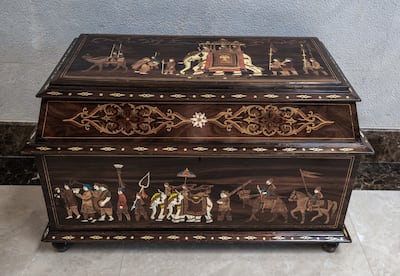
The house opens up to a water fountain and courtyard, with a modern take on the traditional Damascus-style feature. The courtyard leads to a wide staircase with thick wooden banisters, complementing the mashrabiya windows overlooking the fountain.
Al Akkad says she would ideally liked to have an open-air courtyard, however owing to the local climate, she opted for a glass-domed roof, which still lets in ample sunlight.
A harp and a vintage Steinway grand piano are also set up in the indoor courtyard. The instruments have been hand-painted by Lebanese artists with baroque floral motifs.
However, some of the most striking furniture is the set decorating the liwan, Al Akkad’s favourite space in the house where she likes to start her mornings with a coffee.
“All of the furniture in the liwan is custom-made,” Al Ameri says. “It was made to fit the exact measurements of the space. The pieces were made in Syria and assembled here by specialists.”
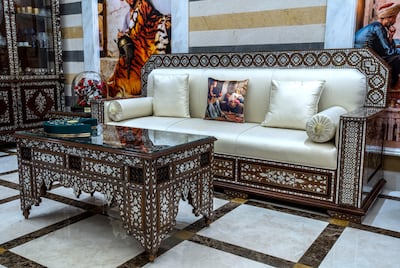
Mother-of-pearl and abalone are in-laid in wood etching out floral patterns and signature Damascene geometries. The furniture set took more than two years to construct and cost more than $225,000, Al Ameri says. The attention to detail and fine craftsmanship of the furniture is stunning, especially considering the set was built during some of the most brutal periods of the Syrian conflict.
“There was a lot of travelling for this project,” Al Akkad says. “I went to Syria despite the conflict, so I could order the pieces. The last of them arrived in 2015.”
The lined stone walls in the rooms are also directly inspired by the walls of Al Akkad’s family home in Syria. Printed murals decorate the arched recesses around the living room with scenes of Damascene heritage. Others are decked around the house, changing from European to Arabian scenery depending on the theme of each room.
The panelled scenes and general aesthetic of the prints, Al Ameri says, were inspired by the type of artworks found in the Palace of Versailles. The chandeliers were also picked to reflect the theme of each room and are priced between $45,000 and $70,000.
Mother-of-pearl furniture is a recurring theme. One bedroom in particular has been devoted to the semi-precious material and comes with a handcrafted set costing $80,000.
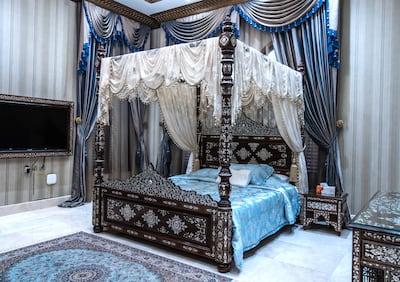
Another room features a bed crafted by the recently closed company of esteemed Egyptian artisan Hussein Al Atrabi, whom the family refer to as pasha. Hand-carved and painted to look identical to the pieces made for King Farouk's palace, the bed cost a cool $60,000. The pasha — a dignified title in 20th-century Egypt — is also responsible for the $165,000 dining table set, a sprawling wooden piece infused with copper.
“He recently passed away,” Al Akkad says. “He was 90 years old. He worked for the palace of King Farouk. He would never compromise his work and design. Even if you wanted to opt for a simpler design for a better price, he would decrease the price, but wouldn’t alter a single detail. It was important to him to still make the same pieces he did for the king.”
In the guest bedroom, which is one of Al Ameri’s favourites, antique French Aubusson tapestry makes up the fabric of the bench seat and ottoman.
“It’s a bit of a lost art,” Al Ameri says. “The place it comes from in France is called Aubusson and they are famous for this fabric, which tells stories. You only find them in auction houses now, for more than $20,000.”
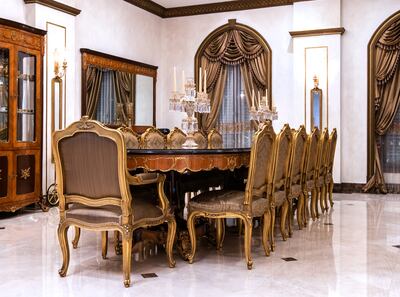
Between the customised artisanal furniture and the antiques, there is an evident focus on craftsmanship and heritage in the Al Akkad household. “It was a lengthy process,” Al Ameri says. “But I’m happy with how it came out. There is still some furniture being brought in.”
Al Ameri says working with her mother provided some of the most memorable experiences of her professional life. She says she is still learning from her mother’s breadth of experience and eye for design. Her family, she says, is a large driving force of her decor company.
“Salud is a play on initials,” Al Ameri says. “It mixes Sultan, the name of my father and son, with Leena, my mother, and my son Suood. I took the initials and jumbled the word and stumbled on Salud. At first, I didn’t know it means 'cheers' in French; I chose it because it sounded nice and sort of like the French 'salut'.”
Al Ameri says while she has a keen interest in working on more local projects, she also has an eye on the international scene.
“I want to reach a place where I am an expert on antiques and valuables, where I can look at a piece and know exactly where it goes, whether it can be renovated and how much i'ts worth," she says. "My aim is to, one day, renovate a European palace.”
